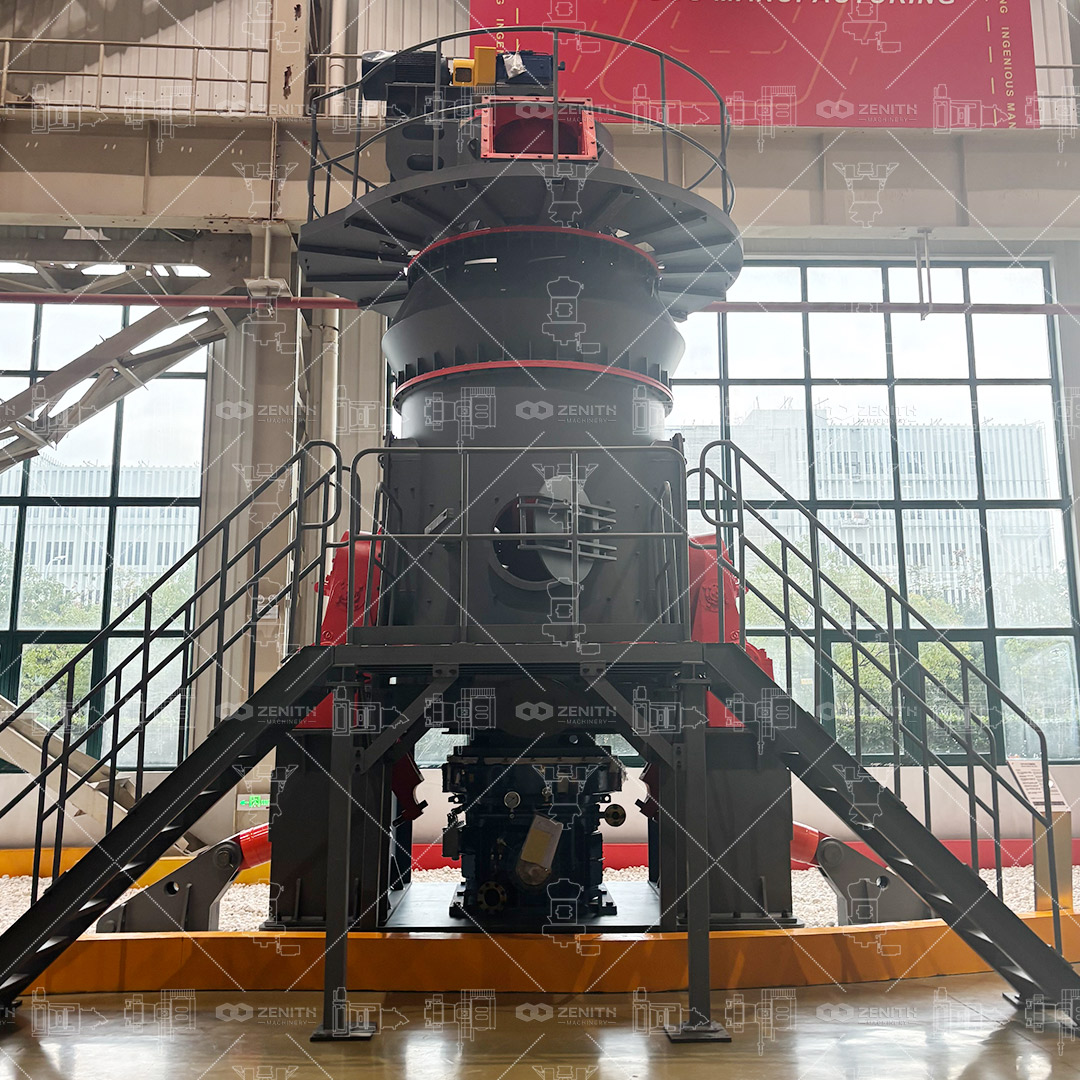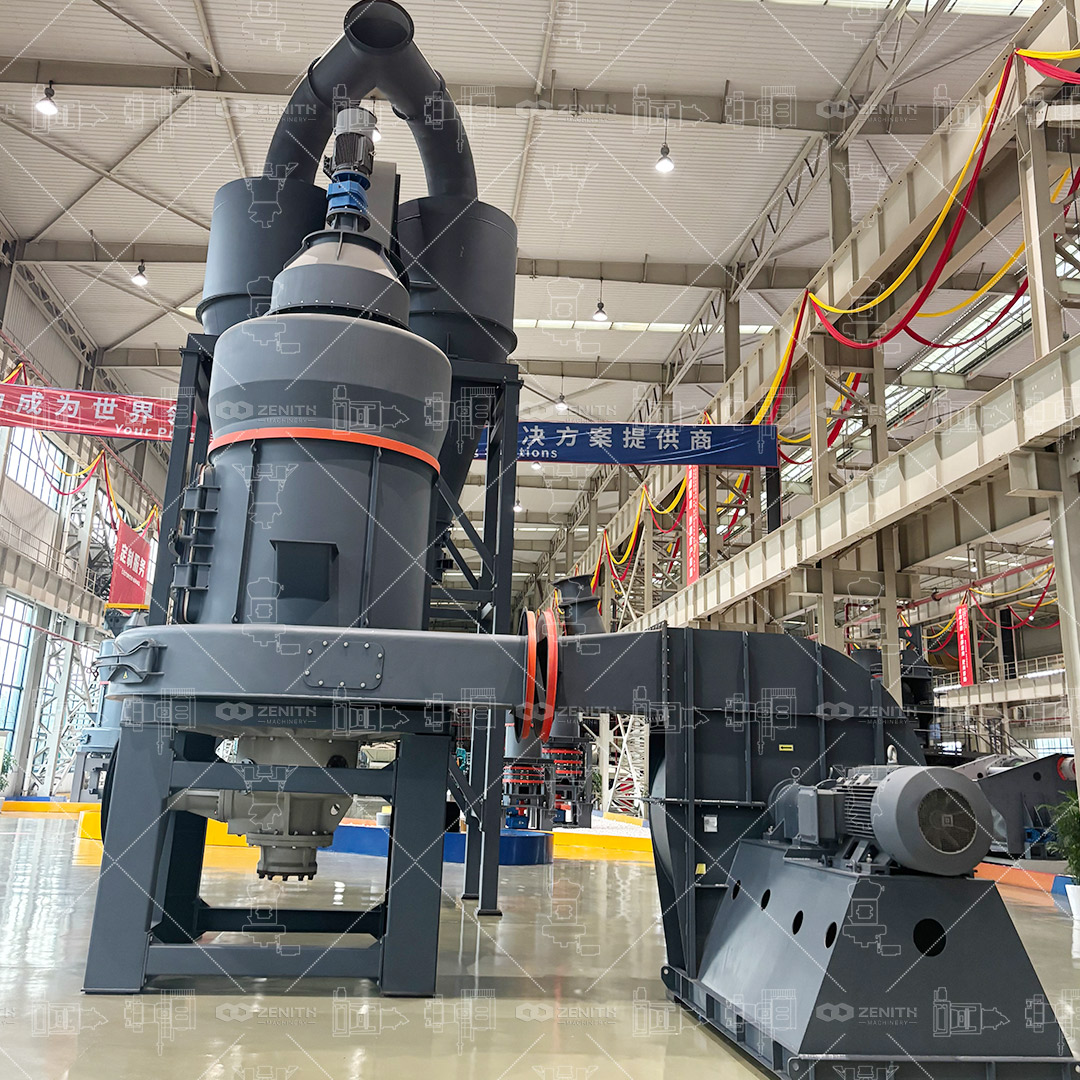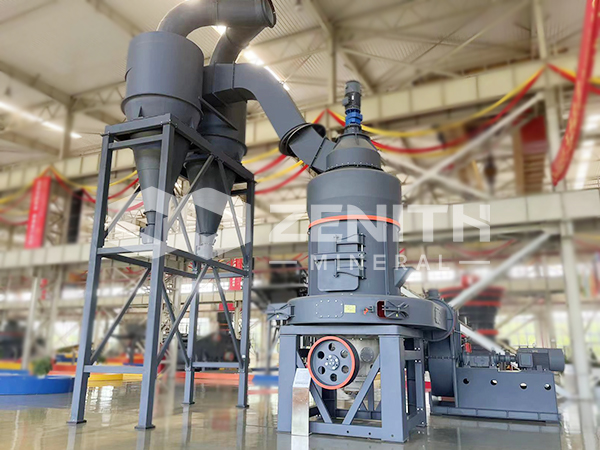Large-scale bentonite powder production projects are required to meet environmental protection standards.
2025-11-10 09:27:50
In today's industrial landscape, large-scale bentonite powder production projects face increasing pressure to comply with stringent environmental protection standards while maintaining operational efficiency and product quality. As global awareness of environmental sustainability grows, manufacturers must adopt advanced technologies that minimize ecological impact without compromising production capacity.
_1762738070726.jpg)
Shanghai Zenith Machinery Co., Ltd., a high-tech engineering group specializing in industrial powder grinding equipment, has developed comprehensive solutions that address these dual challenges. Our equipment portfolio, certified with ISO international quality standards, European Union CE certification, and Customs Union CU-TR certification, demonstrates our commitment to both performance and environmental responsibility.
The Environmental Challenge in Bentonite Processing
Traditional bentonite processing methods often struggle with dust emissions, high energy consumption, and noise pollution. These issues become particularly problematic in large-scale operations where even minor inefficiencies can lead to significant environmental impact. The grinding process itself presents multiple environmental challenges, including particulate matter emissions, energy intensity, and waste generation.
Our research indicates that conventional ball mills, while effective for certain applications, typically consume 60% more energy than modern trapezium mills and vertical grinding systems. This energy disparity translates directly to higher carbon emissions and operational costs, making older technologies increasingly unsustainable from both environmental and economic perspectives.

Advanced Grinding Solutions for Sustainable Production
Zenith's grinding equipment incorporates multiple features specifically designed to address environmental concerns while maintaining high production capacity. The MTW European Trapezium Mill, for instance, operates with 60% lower energy consumption compared to traditional ball mills of the same grade. This significant reduction in power requirements directly translates to lower carbon footprints for bentonite processing facilities.
The MTM European Trapezium Mill offers similar advantages, with its stable performance and adaptability to various materials making it particularly suitable for bentonite applications. Both systems feature advanced air induction technology, with efficiency improvements from 62% to 85%, reducing the energy required for material transport and classification.
Dust Control and Emission Management
Perhaps the most critical environmental consideration in bentonite powder production is dust control. Our grinding systems address this challenge through comprehensive dust collection integration. The working principle of our MTW and MTM mills involves operation under positive and negative pressure conditions, with integrated pulse dust collectors that capture particulate matter effectively.
The LM Vertical Grinding Mill takes this further with its sealed design and negative pressure operation, characterized by no dust spillover, small vibration, and low noise levels. This closed-system approach ensures that bentonite particles remain contained throughout the grinding process, significantly reducing workplace and environmental contamination.
_1762738070730.jpg)
Energy Efficiency and Resource Optimization
Beyond dust control, energy efficiency represents another crucial environmental consideration. Our LUM Ultrafine Vertical Grinding Mill demonstrates remarkable energy-saving capabilities, reducing consumption by 30-50% compared to conventional mills. This efficiency stems from precise control over grinding pressure, speed, and other parameters, optimizing energy use for specific production requirements.
The XZM Ultrafine Grinding Mill offers even greater efficiency for fine powder production, operating with 40% higher efficiency and 70% lower energy consumption than air-flow mills and stirring mills when producing identical powder under the same power conditions. This efficiency directly supports environmental goals by reducing the carbon footprint per ton of bentonite powder produced.
Comprehensive Environmental Compliance
Our equipment designs incorporate environmental considerations at every stage. The Hammer Mill, ideal for coarse bentonite powder production (0-3mm), features optimized cavity design and stable performance characteristics that minimize energy waste and dust generation. Similarly, the Ball Mill and Mining Ball Mill options offer efficient grinding with the flexibility to implement closed-system operations that prevent environmental contamination.
The LM-Y Vertical Pre-grinding Roller Mill exemplifies our integrated approach to environmental responsibility. By combining sand making and grinding capabilities in a single unit, it reduces the overall equipment footprint and energy requirements for operations requiring multiple processing stages.

Operational Benefits Supporting Environmental Goals
The environmental advantages of modern grinding technology extend beyond direct emissions control. Features like reduced occupied area, lower comprehensive investment, and automated operation contribute to sustainable manufacturing practices. Our LM Vertical Grinding Mill, for example, occupies approximately 50% of the space required by equivalent ball mill systems, enabling more efficient facility design and reduced land use.
High automation levels in equipment like the Raymond Mill with its intelligent control system enable labor-free operation and maintenance, reducing the environmental impact associated with workforce transportation and facility services. This automation also ensures consistent operation at optimal efficiency points, preventing energy waste from suboptimal manual control.
_1762738070735.jpg)
Future-Proofing Bentonite Production
As environmental regulations continue to evolve worldwide, the flexibility and adaptability of grinding equipment become increasingly important. Our modular impeller adjustment systems in MTW and MTM mills allow producers to adjust output fineness without equipment modification, enabling compliance with changing product specifications and environmental requirements.
The arbitrary fineness adjustment capability of the XZM Ultrafine Grinding Mill (between 325-2500 mesh) provides similar flexibility, allowing producers to optimize their operations for specific market demands while maintaining environmental compliance.
With our global presence spanning over 180 countries and regions, supported by overseas offices in more than 30 countries, we've witnessed firsthand how environmental standards are converging worldwide. Our equipment designs anticipate this trend, incorporating features that exceed current requirements in most jurisdictions, thereby future-proofing investments in bentonite processing infrastructure.
_1762738070737.jpg)
Conclusion
Large-scale bentonite powder production no longer requires compromise between operational efficiency and environmental responsibility. Advanced grinding technologies now enable producers to meet increasingly strict environmental standards while maintaining competitive production costs and product quality. Through continuous innovation in energy efficiency, dust control, and automated operation, Zenith provides solutions that support sustainable growth in the bentonite industry worldwide.
Frequently Asked Questions
What environmental certifications do Zenith grinding mills hold?
Our equipment has obtained ISO international quality system certification, European Union CE certification, and Customs Union CU-TR certification, ensuring compliance with international environmental and safety standards.
How much energy savings can be expected compared to traditional ball mills?
Our MTW and MTM European Trapezium Mills consume 60% less energy than ball mills of the same grade under ideal working conditions, while our LUM Ultrafine Vertical Grinding Mill reduces energy consumption by 30-50% compared to conventional mills.
What dust control features are incorporated into your grinding systems?
Our mills operate under negative pressure with integrated pulse dust collectors, sealed designs to prevent spillover, and advanced air induction systems that efficiently capture and contain particulate matter.
Can your equipment handle the specific characteristics of bentonite clay?
Yes, our grinding mills are specifically designed to handle various mineral ores including bentonite, with adjustable fineness from coarse powder (1-3mm) to micro powder (1250-3250 mesh) to meet different application requirements.
What is the typical maintenance requirement for these environmental features?
Our systems are designed for easy maintenance with features like reversible structures, hydraulic adjustment systems, and accessible components that ensure environmental systems remain operational with minimal downtime.
How does the noise level of your equipment compare to traditional mills?
Our vertical grinding mills and trapezium mills operate with significantly reduced noise levels due to their enclosed designs and advanced mechanical systems, typically meeting workplace noise regulations without additional attenuation.
Can these systems be integrated with existing plant environmental controls?
Yes, our grinding equipment is designed with modular environmental systems that can be seamlessly integrated with existing plant dust collection, monitoring, and emission control infrastructure.









